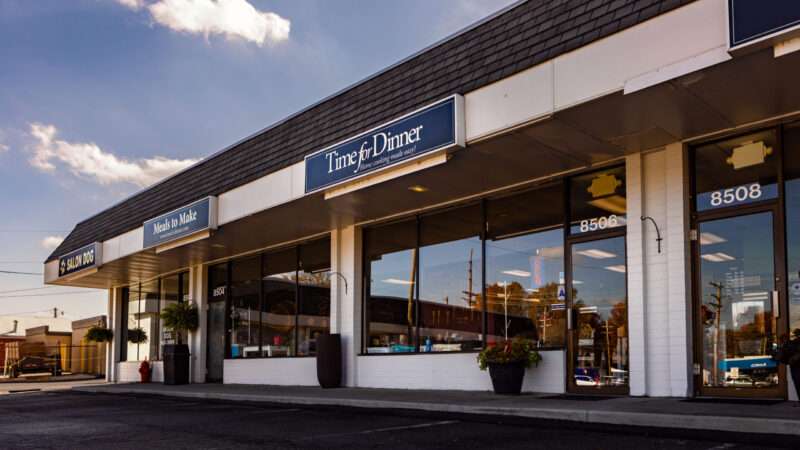
In September, a Missouri judge upheld the city of Brentwood's plan to seize businesses along the Manchester Road Corridor, siding with the city's $436 million redevelopment scheme and its decision to label the area "blighted." Judge Kristine Allen Kerr ruled in the case of Feather-Craft et al v. Brentwood that the blight determination of the Corridor is "fairly debatable"—a legal standard that makes it harder for property owners to challenge government takings—and disagreed that the city made its blight determination "arbitrarily and capriciously." This ruling could clear the way for the seizure of several businesses along the Corridor.
The Institute for Justice (I.J.) filed a lawsuit in December 2023 on behalf of four businesses that were designated as blighted by the city. The suit alleged that city leaders violated Missouri law with both the blight designation and their intent to use eminent domain to condemn their properties.
Bob Belden, the lead I.J. attorney on the case, believes the court failed to apply the correct standard of review by using the "fairly debatable" standard, which placed the burden on the plaintiffs to "demonstrate that the reasonableness of the City's action is not even fairly debatable."
"We argued to the trial court that the Missouri legislature was saying, 'this isn't the kind of standard or review that is supposed to be applied in these cases to protect property rights in a meaningful way,'" says Belden. "You're supposed to look at what the legislature actually considered and how [the law] was actually made."
Ultimately, the court chose to "defer to the legislative determination of blight," even "where evidence contrary to the legislative determination appears stronger than the evidence supporting it." According to the ruling, "so long as substantial evidence exists on both sides," the question of whether an area is blighted can be considered "fairly debatable."
In 2018, Brentwood hired PGAV Planners, an urban planning firm, to conduct a blight study on the Manchester Road Corridor. PGAV concluded that the Corridor was "blighted" based on its location in the city's floodplain and "other blighting factors present."
During the trial, Mayor David Dimmitt testified about the issue of flooding facing the area, despite an $80 million flood mitigation project along Manchester Road that he deemed successful in 2022. The court determined that the 2022 project "did reduce the likelihood of flood damage," but "did not fully resolve the flooding problems and their future risks."
Amy Stanford, owner of Time for Dinner, a family-oriented meal prep business that's been in Brentwood for over two decades, calls the court's ruling "absurd."
"Unfortunately, for more than two years, the neighborhood has been under the threat of eminent domain, which has made it difficult for businesses to invest or expand," Stanford says. In fact, several new businesses that have applied to open here were not approved by the city of Brentwood. That lack of support and uncertainty has only added to the appearance of blight that the city now cites as justification for redevelopment."
Brentwood city officials did not respond to Reason's request for comment.
Belden says his clients are "looking forward to keeping the fight up on appeal." He says they plan to ask the Missouri Supreme Court to take the case under Article V, Section 10 provision of Missouri law based on the "general interest or importance of a question involved in the case, or for the purpose of reexamining the existing law."
The post Missouri Judge Backs City's Eminent Domain Redevelopment Plan appeared first on Reason.com.







